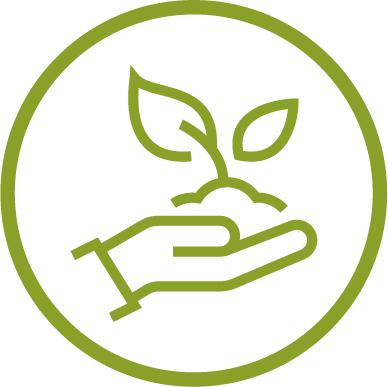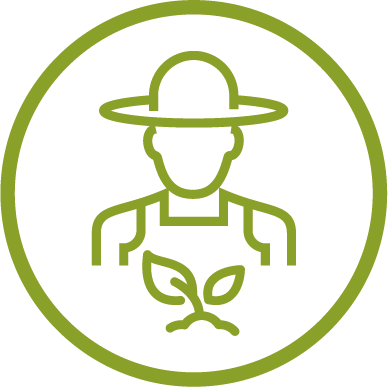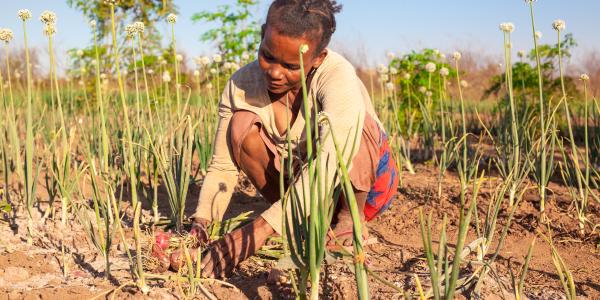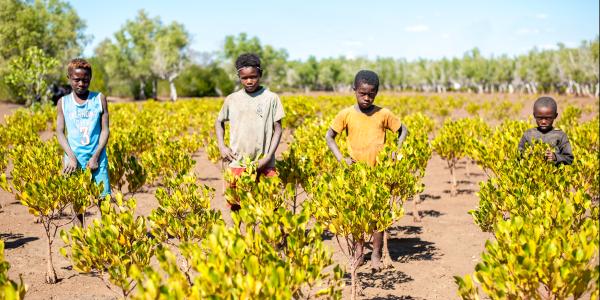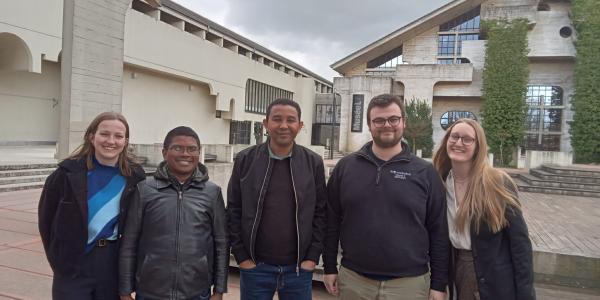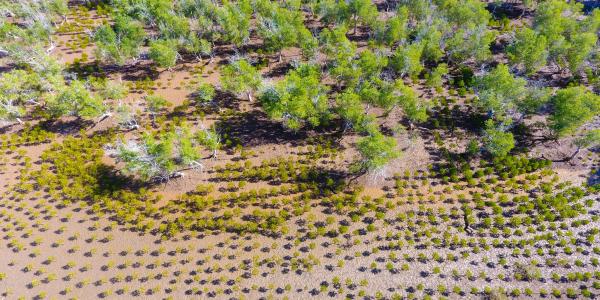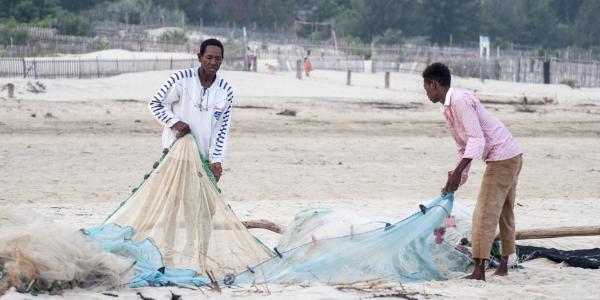
Menabe Region
12
local
partners
3,255
direct beneficiaries
in 2022
Madagascar, an island state in southern Africa and the fifth largest island in the world, has a wealth of resources. Its population is young and better trained than in other least developed countries. It is a mixture of many ethnic groups, but there are no serious tensions. The level of political violence is also relatively low compared with its continental neighbours.
Madagascar has vast tracts of arable land that are not used for agriculture. Its subsoil abounds in abundant, rare and little-exploited natural resources. And it has an exceptional natural heritage.
Yet Madagascar remains one of the poorest countries in the world, with 78% of its population living on less than €2 a day.
The state of food safety is particularly worrying:
- 11 million people are undernourished (2017-2019).
- 1.6 million children are stunted.
- And more than one child in 10 dies before the age of 5.
In terms of employment, the country's main source of income is agriculture:
- 78% of the working population is employed in the agricultural sector.
- The fishing sector has great potential, but is relatively unexploited and subject to competition from foreign industrial fleets.
Madagascar is one of the countries most exposed to climate change in the world:
- The country will lose 4% of its GDP by 2050 if nature continues to deteriorate at the same rate as today.
- 25% of mangrove forests have been destroyed in 23 years.
Our actions


Agroecology
Our aim is to develop sustainable and equitable food and farming systems through an integrated approach combining ecological and social principles to optimise interactions between plants, animals, people and the environment.
To achieve this, we work with our local partners to improve community resilience and local autonomy. This involves technical training in production methods that respect the principles of agroecology. Producers are given support and advice on managing their farms, processing and preserving agricultural produce and developing commercial channels. Access to inputs is facilitated, with a view to diversifying agricultural products. We also support agroforestry and reforestation, and work with families to develop small-scale economic activities to improve their incomes.
We are also working to build the capacity of local actors. This involves structuring and networking professional agricultural organisations, helping them to set up and manage common assets and funds, and building their technical, management and governance skills. We also support their representation at regional and national level.
Finally, we support the sustainable management of natural resources and the conservation of ecosystems, by raising farmers' awareness of the use of the Environmental Integration Tool (EIT), as well as raising community awareness of the impact of climate change.
Partners : F3M, CoopAgri, FIDEV, DRAE (Direction régionale de l’agriculture et de l’élevage) et DRICC (Direction régionale de l’industrie et du commerce).
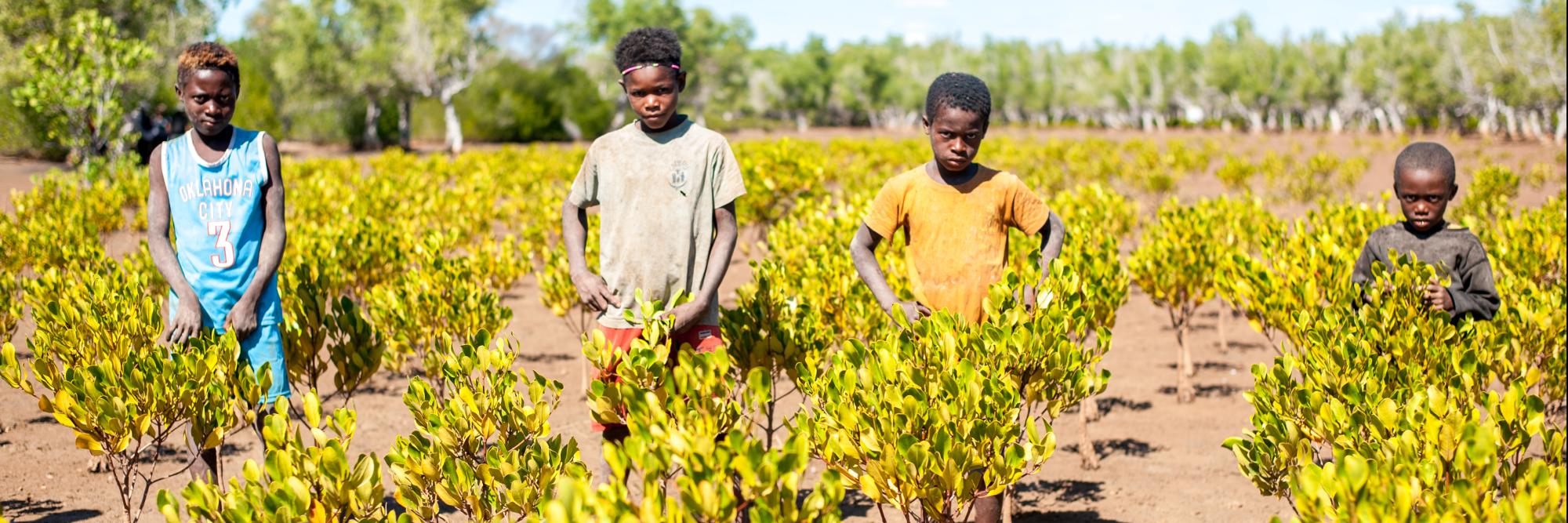

Natural resources
Our aim is to ensure the sustainable management of natural resources, particularly mangrove areas, by working to protect biodiversity, safeguard ecosystem services and promote socio-ecological resilience, with the involvement of local authorities and communities. A great deal of thought is being given to this issue within our consortium of university NGOs, Uni4Coop.
To achieve this, together with our local partners, we are working to improve the governance of mangrove areas, through advocacy in favour of these ecosystems, as well as raising local awareness of regulations.
To strengthen shared knowledge in this area, awareness-raising campaigns on ecosystem development and management plans and environmental education in schools are being set up. We also organise consultation and knowledge-sharing sessions on the proper management of ecosystems. Access to this knowledge requires the ability to read and write. Functional literacy and consciousness-raising courses are therefore offered to adults who have not had the chance to go to school.
To encourage the sustainable use of mangroves, we are working to improve the incomes and living conditions of the people living in these areas. This involves supporting sustainable economic activities that do not destroy the ecosystem, setting up and developing group savings schemes, and supporting fishermen's cooperatives. We also organise exchange visits on mangroves and open days in these areas.
Finally, to encourage the conservation and restoration of mangrove areas, we have set up a "green fund" to support local initiatives. We are also distributing a toolkit of best practices and promoting an economic model that reconciles exploitation and conservation.
Partners : FIVOI, FIAME, OPCI Alokaina, FIDEV, ALEFA MENABE, DRPEB (Direction régionale de la Pêche et de l’Economie bleue) et DREDD (Direction régionale de l’Environnement et du Développement Durable).
Some results in 2022
32ha of mangroves restored.
308 households supported in their agro-ecological transition.
7 village nurseries created for the production of fruit tree seedlings and forest species.
19 grassroots professional farming organisations supported.


